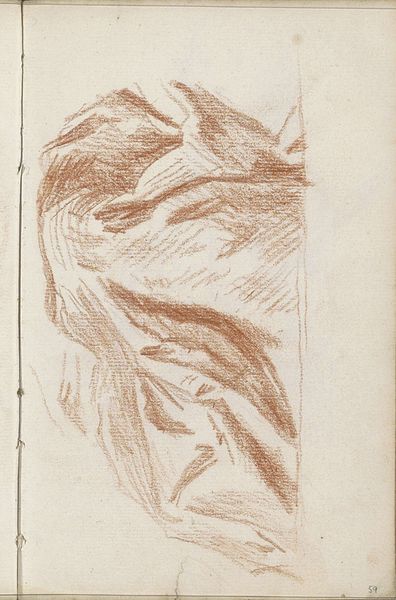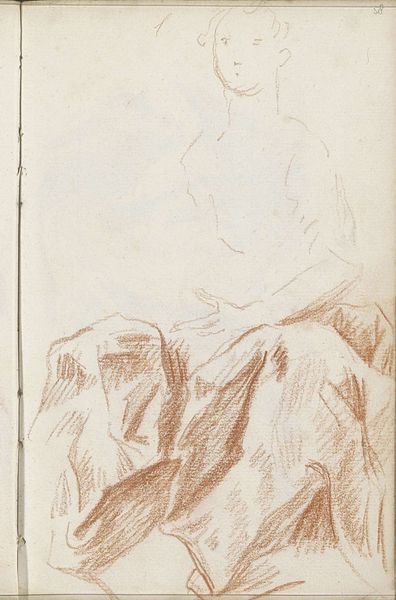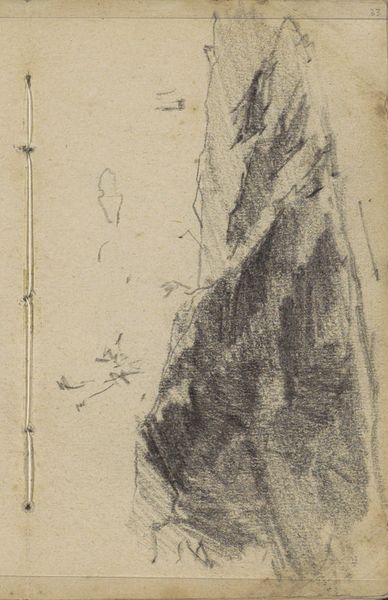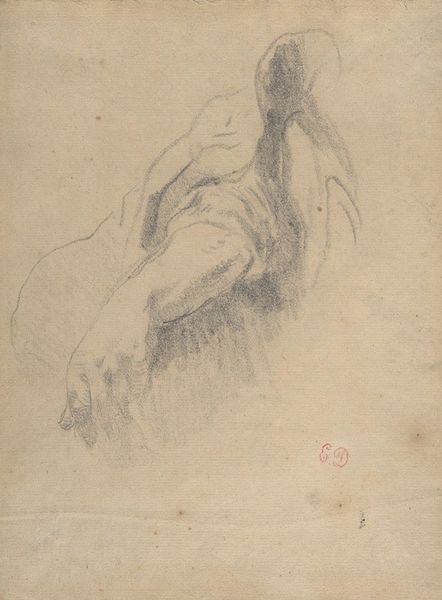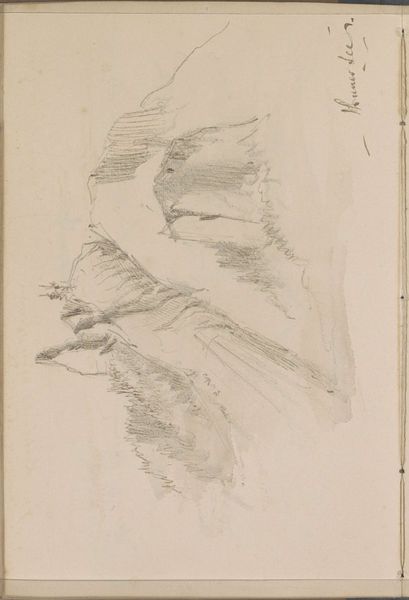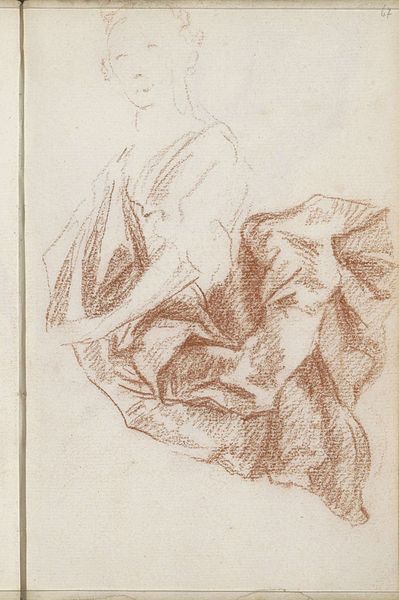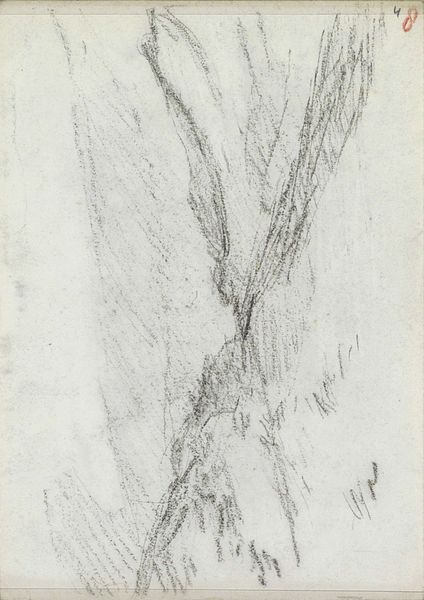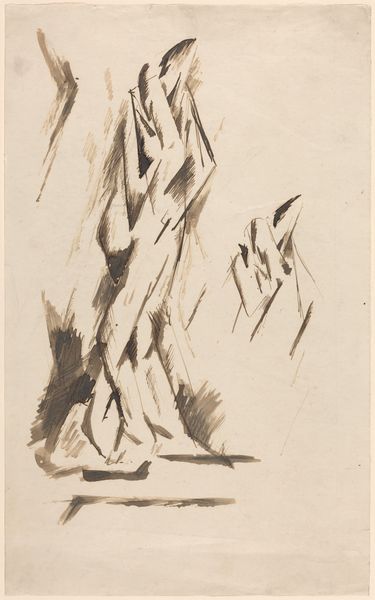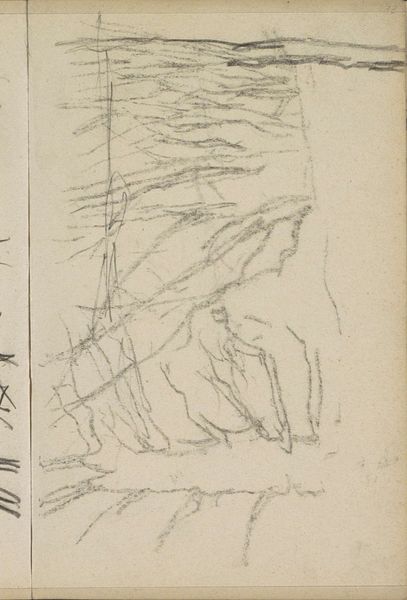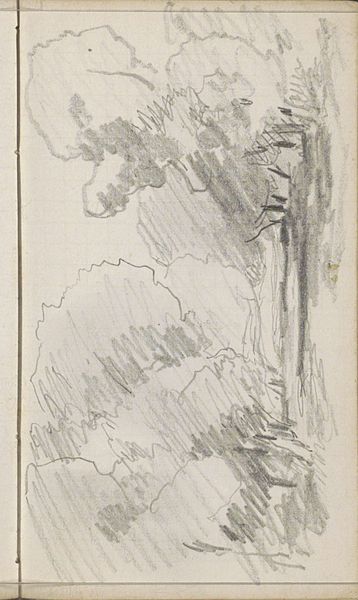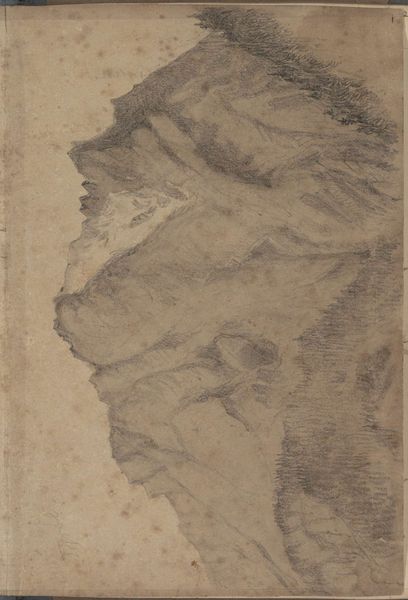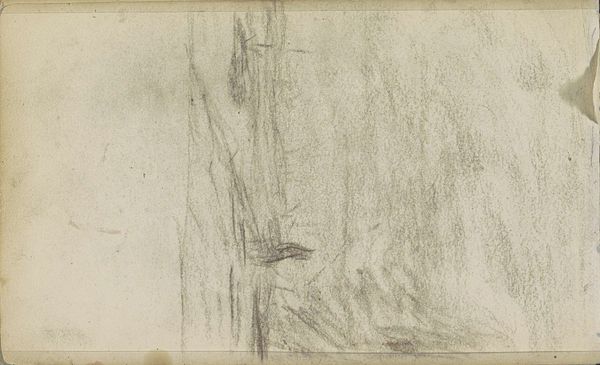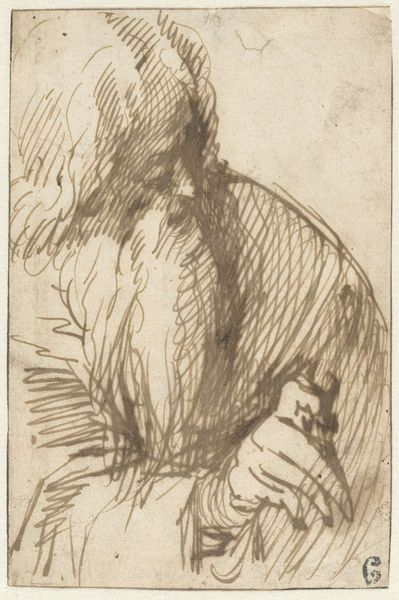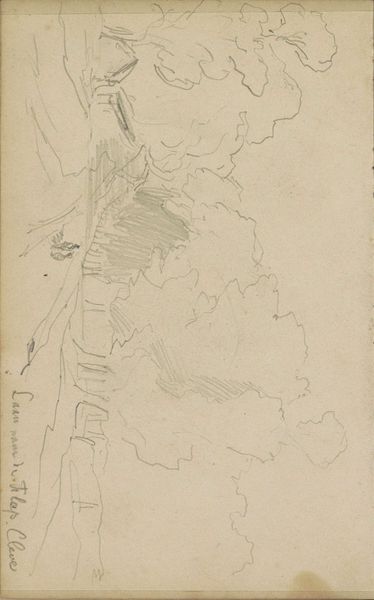
#
amateur sketch
#
toned paper
#
light pencil work
#
pen sketch
#
pencil sketch
#
incomplete sketchy
#
pencil drawing
#
ink drawing experimentation
#
pen-ink sketch
#
pencil work
Copyright: Rijks Museum: Open Domain
This red chalk study of drapery was created by Petrus Johannes van Reysschoot in the 18th century. The folds of fabric aren't merely aesthetic; they're a potent symbol, a visual language stretching back millennia. Think of the veils and robes in classical sculpture, concealing and revealing, suggesting the divine or the heroic. This motif reappears in Renaissance paintings, where drapery conveys status, emotion, and narrative depth. Even in early Christian art, flowing robes signified purity and spirituality. Consider how drapery has evolved. In ancient Greece, it spoke of idealized beauty; in the Baroque era, it amplified drama and movement. This constant rebirth speaks to a shared human need to express the intangible—power, sorrow, grace—through the tangible form of fabric. The folds in this study are more than just lines on paper; they are echoes of a collective memory, a visual thread connecting us to the past.
Comments
No comments
Be the first to comment and join the conversation on the ultimate creative platform.
